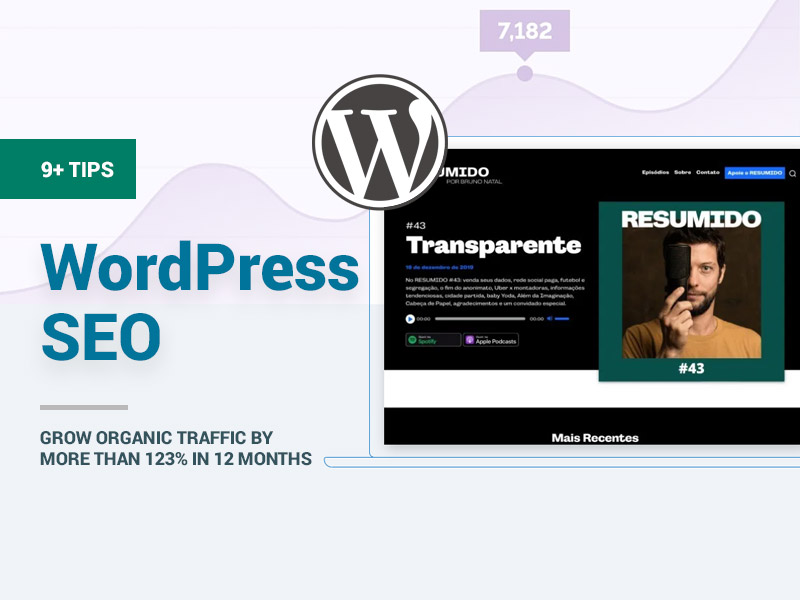In the wake of Google’s relentless core algorithm updates starting earlier this year, SEO experts have been perpetually on the lookout for fresh strategies to regain lost positions and secure higher rankings.
One intriguing approach that has surfaced amidst these changes is the establishment of topical authority. This concept has become particularly important in today’s era where AI content generators are reshaping the SEO landscape.
This blog post aims to guide you through advanced SEO techniques that can help you build topical authority.
Let’s explore these strategies together.
What is Topical Authority?
Topical authority refers to the credibility and expertise a website or content creator possesses in a specific subject area.
It is a strategic approach that involves creating content clusters around a specific subject to demonstrate your expertise and knowledge in that area. It is a carefully curated group of interconnected content pieces that cover a subject comprehensively. The idea is to create a web of knowledge that not only benefits your readers but also makes your site more appealing to search engines.
Plus, it can increase your chances of earning high-quality backlinks from other authoritative sites, further boosting your SEO.
Reasons You Need to Know How to Build Topical Authority
By building topical authority you offer greater value to your readers, and send a signal to search engines about your credibility on the topic. The result? Better rankings and increased visibility.
Here are a few reasons why this skill is essential:
- Improved Visibility: Building topical authority, increasing your chances of ranking higher on search engine results pages (SERPs). Higher visibility means more organic traffic and potential leads.
- Increased Credibility: When you demonstrate expertise in a specific topic, you earn the trust of your readers. This credibility can translate into increased engagement and conversions.
- Staying Relevant: Google’s core algorithm updates now prioritize relevance and quality. By focusing on topical authority, you align your strategies with these updates, ensuring your content remains relevant.
- Competitive Edge: Not everyone has caught on to the power of topical authority yet. By mastering this skill, you can stay ahead of your competitors and stand out in your niche.
Advanced SEO Techniques to Build Topical Authority
Executing these SEO techniques involves several steps, including keyword research to identify relevant topics, creating comprehensive and high-quality content around these topics, and ensuring your content is well-structured and interlinked.
- 1. Topic Selection: Choose a topic relevant to your business and your audience. It should be something you can write extensively about.
- 2. Keyword Research: Identify the primary and secondary keywords related to your chosen topic. These will form the core of your content clusters.
- 3. Creating the Pillar Content: Write a comprehensive, in-depth article on your chosen topic. This pillar content will serve as the cornerstone of your content cluster.
- 4. Developing Cluster Content: Create additional articles that delve into subtopics of your main topic. Make sure to link these back to your pillar content.
- 5. Optimization: Ensure all your content is optimized for SEO. This includes meta tags, image alt tags, and of course, your content itself. Regularly review and update your content to ensure it remains accurate and fresh.
Now that we’ve outlined the steps, let’s dive deeper into each one. In the following sections, we’ll explore each step in detail, providing you with practical tips and insights to help you build your topical authority effectively.
Topic Selection
The first step in building topical authority is selecting the right topic.
This forms the foundation of your entire content cluster, so choose wisely. Your chosen topic should be relevant to your business and also something that your target audience is interested in.
To execute this step, start by identifying the key areas of expertise within your business.
What are the products or services you offer? What are the topics that align with these offerings? Next, consider your audience’s interests and needs. What kind of information are they seeking?
You can use tools like Google Trends, social media listening, or even customer feedback to gain insights into what your audience cares about.
Once you’ve identified potential topics, evaluate them based on their search volume and competition. Tools like Google Keyword Planner or SEMrush can provide this data. Ideally, you want a topic with high search volume and low competition, indicating that there’s a demand for information on this topic, but not a lot of quality content available.
Remember, the goal is to become an authority on this topic, so choose a topic you can confidently write extensively about.
With the right topic in hand, you’re ready to move on to the next step – keyword research.
Keyword Research
Keyword research is a crucial step in building topical authority. It involves identifying the primary and secondary keywords related to your chosen topic. These keywords will guide your content creation process, ensuring your content aligns with what people are searching for.
Here’s how to execute this step:
- 1. Start with Seed Keywords: Begin by brainstorming seed keywords. These are basic terms that describe your topic. For instance, if your topic is “Yoga”, your seed keywords could be “Ashtanga Yoga”, “Hot Yoga” etc.
- 2. Use Keyword Research Tools: Next, use keyword research tools like Google Keyword Planner, SEMrush, or Ahrefs. Input your seed keywords to generate a list of related keywords. These tools also provide valuable data like search volume, keyword difficulty, and more.
- 3. Identify Primary and Secondary Keywords: From the list of keywords, identify your primary and secondary keywords. Your primary keyword should be highly relevant to your topic and have a good search volume. Secondary keywords are variations or related terms to your primary keyword.
- 4. Consider Long-Tail Keywords: Don’t overlook long-tail keywords. These are longer phrases that are less competitive but can attract highly targeted traffic. For example, “how to bake vegan chocolate cake” is a long-tail keyword related to “vegan baking”.
- 5. Analyze Competitor Keywords: Finally, analyze the keywords your competitors are ranking for. Tools like SEMrush can provide insights into your competitors’ keyword strategies.
By optimizing your content around keywords, you increase the chances of your content being discovered by the right audience. Once you have a list of keywords, you’re ready for the next step – creating your pillar content.
Creating the Pillar Content
Creating the pillar content is the next important step in building topical authority. Your pillar content serves as the cornerstone of your content cluster. It’s a comprehensive, in-depth piece that covers your chosen topic extensively.
- 1. Outline Your Content: Start by creating an outline for your pillar content. Use your primary keyword and related secondary keywords to guide the structure of your content. Make sure to cover all aspects of your chosen topic.
- 2. Write In-Depth: Your pillar content should be long-form and detailed, typically ranging from 2,000 to 5,000 words. Make sure to provide valuable information that addresses your audience’s queries about the topic.
- 3. Optimize for SEO: Incorporate your primary and secondary keywords naturally throughout the content. Also, pay attention to other on-page SEO elements like meta tags, header tags, image alt tags, etc.
- 4. Include Internal Links: Add internal links within your pillar content that lead to relevant pages on your website. This not only helps with SEO but also provides additional value to your readers.
- 5. Make it Engaging: Despite being comprehensive, your pillar content should be engaging. Break up text with images, infographics, videos or interactive elements. Also, writing in a conversational tone can make the content more readable.
- 6. Call to Action: Lastly, don’t forget to include a call to action. Whether it’s encouraging readers to subscribe, share your content, or contact you for more information, a clear CTA can help you achieve your business goals.
Creating high-quality pillar content takes time and effort, but it’s worth it. Once your pillar content is ready, you can start creating cluster content around it.
Creating Cluster Content
The fourth technique in building topical authority is creating cluster content. Cluster content refers to a series of related articles that delve into the subtopics of your pillar content. Each piece of cluster content links back to the pillar content, forming a ‘content cluster‘.
Here’s how to execute this step:
- 1. Identify Subtopics: Start by identifying subtopics from your pillar content. These should be relevant aspects of your main topic that can be explored in further detail. For example, if your pillar content is about “vegan baking”, subtopics could include “vegan cake recipes”, “substitutes for eggs in vegan baking”, etc.
- 2. Write Detailed Articles: Write detailed articles on each subtopic. While these articles are shorter than the pillar content, they should still provide valuable, in-depth information. Aim for around 800 – 1,500 words per article.
- 3. Optimize for SEO: Just like with your pillar content, incorporate relevant keywords naturally throughout your cluster content. Remember to optimize other on-page SEO elements as well.
- 4. Link Back to Pillar Content: This is a crucial step. Each piece of cluster content should link back to your pillar content. This interlinking not only helps with SEO but also guides readers towards your comprehensive pillar content.
Creating cluster content helps you cover all aspects of your chosen topic, further establishing your topical authority. Plus, it provides multiple entry points for users to discover your content and navigate towards your pillar content.
Once you’ve created and linked your cluster content, your content cluster is complete!
Ongoing Optimization – Monitoring and Updating Your Content
The final step in building topical authority is monitoring and updating your content. SEO is a long-term strategy, and it’s important to keep your content fresh and relevant.
- 1. Track Your Performance: Use tools like Google Analytics to track the performance of your pillar and cluster content. Look at metrics like organic traffic, bounce rate, time spent on page, etc. These can indicate how engaging and valuable your audience finds your content.
- 2. Monitor Keyword Rankings: Use SEO tools to monitor your keyword rankings. If you see a drop in rankings for certain keywords, it might be time to update your content or improve your optimization.
- 3. Check for Outdated Information: Make sure your content stays up-to-date. If new information or developments arise related to your topic, update your content accordingly.
- 4. Refresh Your Content: Even if there are no significant changes to the topic, it’s a good practice to refresh your content periodically. This could involve adding new sections, improving readability, updating images, etc.
- 5. Repurpose Your Content: Consider repurposing your pillar content into other formats like infographics, videos, or podcasts. This can help attract a wider audience and boost your authority.
Key Considerations For Successfully Building Topical Authority
In the process of building topical authority, it’s crucial not to lose sight of the ultimate goal: providing value to your audience. While SEO is a key part of this strategy, it should not overshadow the importance of creating high-quality, informative content. Always aim to answer your audience’s questions and solve their problems through your content.
Another key insight is the importance of consistency. Building topical authority takes time and requires consistent effort. Regularly publishing new content and updating old content are both essential for maintaining and enhancing your topical authority.
Taking it to the Next Level: How to Enhance Your Topical Authority
Once you’ve established a solid foundation in building topical authority, you can take it to the next level by leveraging advanced strategies.
One way is by conducting regular competitive analysis. This involves studying the content and SEO strategies of your competitors who rank well for your target keywords. By understanding what they’re doing right, you can gain insights into how you might improve your own content and SEO strategies.
Another approach is to engage with your audience actively.
This could be through comments on your blog posts, social media interactions, or even hosting webinars or Q&A sessions. Active engagement not only helps you understand your audience better but also builds trust and credibility, further boosting your topical authority. Lastly, consider collaborating with other authorities in your field.
Guest posting on reputable websites, co-hosting webinars, or conducting joint research studies are all effective ways to enhance your visibility and reputation.
Not only does this expose your content to a wider audience, but it also associates your name with other respected figures in your field, thereby amplifying your topical authority.
My Final Thoughts on Building Topical Authority
Building topical authority is a strategic process that involves selecting a suitable topic, creating high-quality pillar and cluster content, optimizing for SEO, linking your content together, and regularly monitoring and updating your content.
It’s a long-term strategy, but when executed correctly, it can significantly boost your website’s visibility and credibility. My experience with building topical authority has been a journey of continuous learning and improvement. Over the years, I’ve seen firsthand the impact of this strategy on both website traffic and audience engagement.
It’s helped me establish a strong online presence and become a trusted source of information in my field.
I encourage you to implement these strategies and witness the transformation they can bring to your online presence.
Remember, it’s not just about ranking higher on search engines, but about providing real value to your audience and becoming a go-to resource in your chosen topic.







